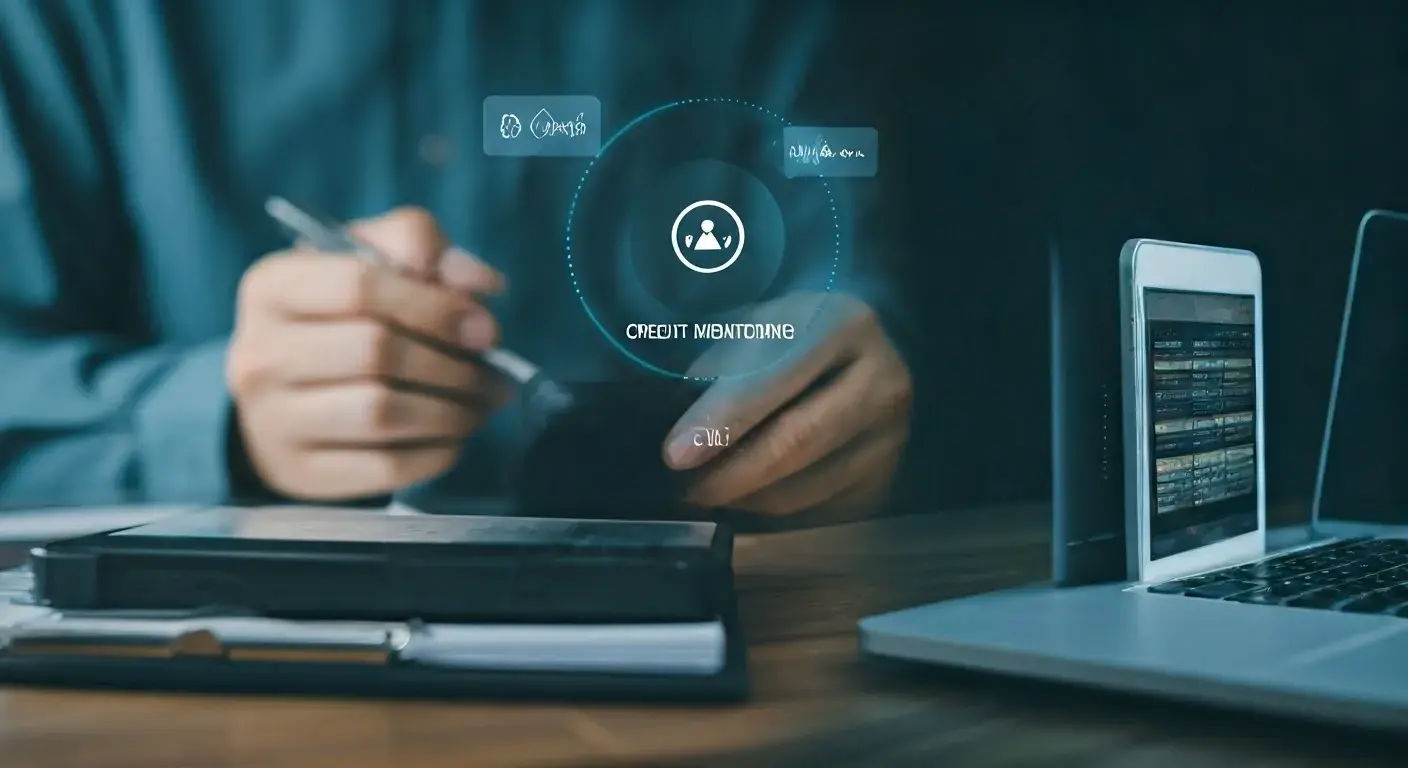-
Posted on: 23 Jul 2024

-
Having a good credit score is crucial for various aspects of life, from securing loans and mortgages to renting an apartment and even getting a job. Unfortunately, many people struggle with less-than-perfect credit due to errors, inaccurate information, or past financial mistakes. This is where credit repair comes in. But with so many options available, determining the "best" credit repair can be overwhelming. This guide will provide a comprehensive overview of credit repair, including DIY methods, professional services, and essential considerations to help you make an informed decision.
Understanding Credit Repair
Credit repair is the process of challenging inaccurate, outdated, or unverifiable information on your credit reports to improve your credit score. It's important to understand that credit repair cannot magically erase legitimate negative information, such as late payments or bankruptcies that are reported accurately. However, it can address errors and inaccuracies that negatively impact your creditworthiness.
What Can Credit Repair Address?
Credit repair can potentially address the following types of errors or inaccuracies on your credit reports:
- Incorrect personal information: Misspellings, incorrect addresses, or outdated contact details.
- Accounts that don't belong to you: Accounts opened fraudulently in your name.
- Inaccurate account information: Incorrect payment history, loan balances, or credit limits.
- Outdated information: Negative information that should have been removed according to the Fair Credit Reporting Act (FCRA).
- Duplicate accounts: Multiple listings of the same account.
- Accounts discharged in bankruptcy: Incorrect reporting of accounts that were included in a bankruptcy filing.
The Fair Credit Reporting Act (FCRA)
The FCRA is a federal law that protects consumers' rights regarding their credit information. It ensures the accuracy, fairness, and privacy of consumer credit reports. Under the FCRA, you have the right to:
- Access your credit reports: You are entitled to a free credit report from each of the three major credit bureaus (Equifax, Experian, and TransUnion) annually at AnnualCreditReport.com.
- Dispute inaccurate information: You have the right to dispute any information on your credit report that you believe is inaccurate or incomplete.
- Require credit bureaus to investigate: The credit bureaus must investigate your dispute and respond within 30 days (or 45 days in some cases).
- Have inaccurate information corrected or deleted: If the credit bureau finds that the information is inaccurate, it must be corrected or deleted from your credit report.
DIY Credit Repair: Taking Control of Your Credit
DIY credit repair involves taking the steps yourself to review your credit reports, identify inaccuracies, and dispute them with the credit bureaus. This option requires time, effort, and a thorough understanding of the FCRA, but it can be a cost-effective way to improve your credit.
Steps for DIY Credit Repair:
- Obtain your credit reports: Request a free copy of your credit report from each of the three major credit bureaus at AnnualCreditReport.com.
- Review your credit reports carefully: Look for any errors, inaccuracies, or outdated information. Pay close attention to personal information, account details, and payment history.
- Identify inaccuracies: Create a list of all the items you believe are inaccurate or incomplete.
- Gather supporting documentation: Collect any documents that support your claims, such as payment records, account statements, or court documents.
- Draft dispute letters: Write a separate dispute letter for each item you are challenging. Be clear, concise, and provide supporting documentation. Include your name, address, date of birth, and the account number in question.
- Send dispute letters to the credit bureaus: Send your dispute letters to the credit bureaus via certified mail with return receipt requested. This provides proof that the credit bureau received your letter.
- Follow up with the credit bureaus: The credit bureaus have 30 days (or 45 days in some cases) to investigate your dispute and respond. If you don't receive a response within that timeframe, follow up with them.
- Review the credit bureau's response: Once you receive a response from the credit bureau, carefully review their findings. If they have corrected or deleted the inaccurate information, your work is done. If they have not, you can appeal their decision and provide additional evidence.
- Continue disputing inaccurate information: Continue disputing inaccurate information until it is corrected or deleted from your credit report.
Benefits of DIY Credit Repair:
- Cost-effective: DIY credit repair is generally less expensive than hiring a professional credit repair service.
- Full control: You have complete control over the process and can tailor your approach to your specific needs.
- Learn about credit: DIY credit repair can help you learn more about how credit works and how to manage it effectively.
Drawbacks of DIY Credit Repair:
- Time-consuming: DIY credit repair can be time-consuming and require significant effort.
- Requires knowledge: You need to have a good understanding of the FCRA and the credit reporting process.
- Can be frustrating: Dealing with credit bureaus can be frustrating and time-consuming.
Professional Credit Repair Services: Getting Expert Help
Professional credit repair services offer assistance with reviewing your credit reports, identifying inaccuracies, and disputing them with the credit bureaus. These services typically charge a monthly fee or a one-time fee for their services. It's crucial to choose a reputable and trustworthy credit repair company that complies with all applicable laws and regulations.
What Do Credit Repair Companies Do?
Credit repair companies typically perform the following services:
- Credit report analysis: Review your credit reports from all three major credit bureaus to identify inaccuracies, errors, and outdated information.
- Dispute letters: Prepare and send dispute letters to the credit bureaus on your behalf.
- Follow-up: Follow up with the credit bureaus to track the progress of your disputes.
- Debt validation: Assist you in requesting debt validation from creditors to ensure that the debts are valid and accurate.
- Credit counseling: Provide guidance on how to manage your credit effectively and improve your credit score.
Choosing a Credit Repair Company: Key Considerations
When selecting a credit repair company, consider the following factors:
- Reputation and Reviews: Check online reviews and ratings of the company. Look for companies with a proven track record of success and positive customer feedback.
- Transparency: Choose a company that is transparent about its fees, services, and guarantees. Avoid companies that make unrealistic promises or guarantee specific results.
- Compliance with the Credit Repair Organizations Act (CROA): Ensure the company complies with the CROA, which protects consumers from unfair or deceptive credit repair practices. CROA requires companies to provide you with a written contract outlining your rights and obligations.
- Pricing: Compare the fees charged by different credit repair companies. Be wary of companies that charge high upfront fees or require you to pay for services before they are performed.
- Guarantees: Look for companies that offer a money-back guarantee or a satisfaction guarantee.
- Customer Service: Choose a company that provides excellent customer service and is responsive to your inquiries.
Red Flags to Watch Out For:
Be cautious of credit repair companies that:
- Guarantee specific results: No credit repair company can guarantee that they will be able to remove all negative information from your credit report.
- Ask for upfront fees before providing services: This is a violation of the Credit Repair Organizations Act (CROA).
- Encourage you to create a new credit identity: This is illegal and can have serious consequences.
- Tell you not to contact the credit bureaus directly: You have the right to communicate with the credit bureaus yourself.
- Fail to explain your rights under the FCRA and CROA: Legitimate companies will be upfront about your rights.
Benefits of Using a Credit Repair Service:
- Expertise: Credit repair companies have expertise in the credit reporting process and can help you navigate the complexities of the FCRA.
- Time savings: Credit repair companies can save you time and effort by handling the dispute process on your behalf.
- Improved outcomes: A professional credit repair company may be able to achieve better results than you could on your own.
Drawbacks of Using a Credit Repair Service:
- Cost: Credit repair services can be expensive.
- No guarantee of success: There is no guarantee that a credit repair service will be able to improve your credit score.
- Potential for scams: There are many unscrupulous credit repair companies that may take your money without providing any real benefit.
Alternatives to Credit Repair
Before pursuing credit repair, consider these alternative options:
- Debt Settlement: Negotiating with creditors to settle your debts for less than the full amount owed. This can negatively impact your credit score in the short term, but it can help you avoid bankruptcy.
- Credit Counseling: Working with a non-profit credit counseling agency to develop a budget, manage your debt, and improve your financial literacy.
- Debt Management Plan (DMP): A structured repayment plan offered by credit counseling agencies to consolidate your debts and lower your interest rates.
- Secured Credit Cards: A credit card that requires a security deposit, which serves as your credit limit. Using a secured credit card responsibly can help you build or rebuild your credit.
The Bottom Line: What's the Best Credit Repair for You?
The "best" credit repair depends on your individual circumstances and needs. If you have the time, knowledge, and willingness to put in the effort, DIY credit repair can be a cost-effective option. If you prefer to have professional assistance, carefully research and select a reputable credit repair company. Remember that credit repair is not a quick fix. It takes time, effort, and patience to improve your credit score. Focus on building positive credit habits, such as paying your bills on time and keeping your credit utilization low.










